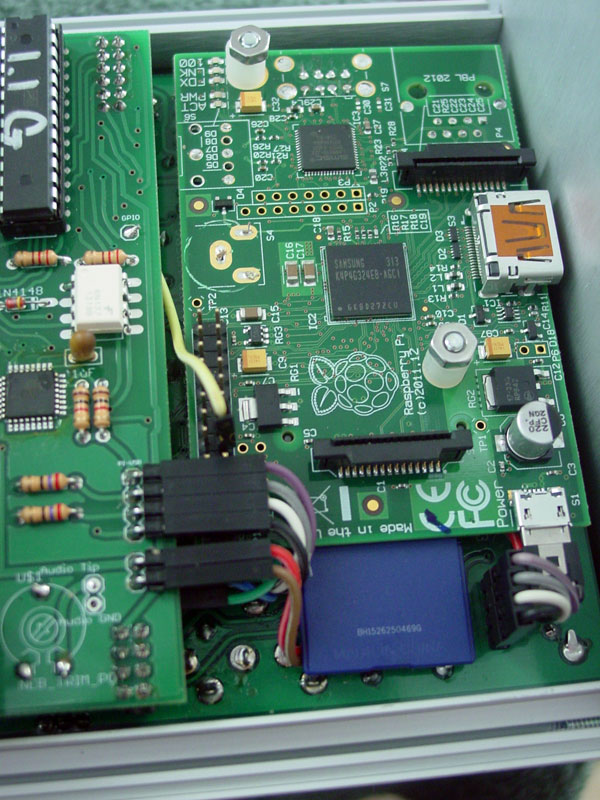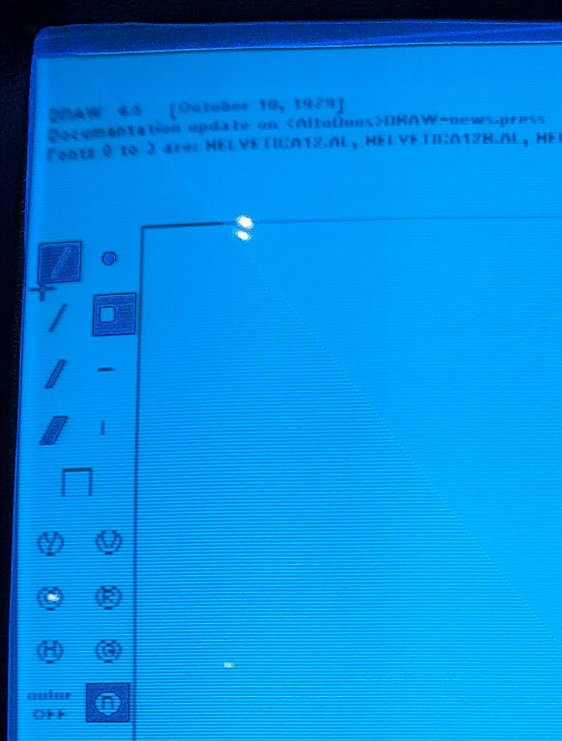
The back side of the Qu-Bit Nebulae module, showing the Raspberry Pi it uses for an operating system (for cv-controlled granular sample manipulation).
Although still functioning perfectly, this is a five year old relic, like the bone of a saint ensconced in an ornamental cabinet. Qu-Bit is no longer making the Nebulae because Raspberry Pi changed its design and/or specs. So I have a dedicated general purpose computer humming away inside an obsolete musical instrument. There is something kind of poignant about that. Or perhaps not.


